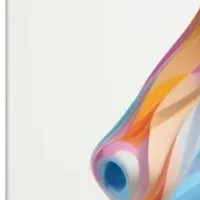
Celebrating 30 Transformative Years of Dictionary.com and Its Impact on Language
Dictionary.com at 30: A Linguistic Journey
In 1995, amidst the groundbreaking release of Toy Story and the high-profile O.J. Simpson trial, the internet was introduced to a new treasure trove of knowledge and words—Dictionary.com. This platform quickly became a vital resource for lovers of language, eager to settle spelling disputes and expand their vocabularies. Fast forward three decades, and Dictionary.com is not just a dictionary; it is a cultural cornerstone that reflects the ongoing transformation of language.
A Legacy of Change
As Dictionary.com turns 30, it invites its users to look back at the profound changes in how we communicate. The words that once filled the pages of dictionaries have morphed into expressions of contemporary life. “Words grow up, too,” states Steve Johnson, PhD, Director of Lexicography at IXL Learning. According to Johnson, terms like cloud and stream have evolved in meaning beyond their original definitions, illustrating our shifting relationship with technology. Today, stream refers more to the act of consuming media online in real-time rather than the natural flowing of water. Likewise, cloud has transitioned from a simple weather term to a digital storage solution.
Dictionary.com has diligently chronicled these shifts, not only in terms of technological evolution but also in how we understand pop culture and our daily lives. Several words have taken on new life, capturing current realities that reflect our society.
Evolving Terminology
The anniversary analysis of Dictionary.com highlights several fascinating transformations in language:
- - Stream: Once a descriptive noun for flowing water, it has now become synonymous with online media consumption, indicating our preference for immediate access to entertainment.
- - Hallucination: Originally describing a psychological phenomenon, this term found new relevance as it now refers to false narratives produced by artificial intelligence, showcasing how technology intertwines with language.
- - Ghost: Previously referring to spirits of the deceased, it has gained a modern twist as a term for abruptly ending communication, especially in dating contexts. This is a reflection of our technologically mediated interactions.
- - Lit: An adjective traditionally associated with brightness has morphed into a slang term for being intoxicated or experiencing something exciting, highlighting how language adapitates to cultural trends.
These examples illustrate not just semantic shifts; they reveal how language often mirrors the cultural pulse and technological advancements of its time.
Charting the Future
Since its inception as a valuable lexical tool, Dictionary.com has broadened its scope, illuminating language trends and providing clarity in a world flooded with information. Its various features, including Word of the Day and Word of the Year, are just a small part of how it actively shapes linguistic discourse today. Its acquisition by IXL Learning in 2024 further expanded its reach, bringing together an impressive array of educational resources like Thesaurus.com and SpanishDictionary.com, all serving over 500 million individuals annually.
As Dictionary.com continues to advocate for the joy and power of language, it fosters an environment where users can express themselves more clearly and creatively. With 96 million visits each month, it stands as the premier online destination for those eager to delve into the limitless world of words.
Concluding Thoughts
As we celebrate 30 years of Dictionary.com, it’s essential to recognize the platform's invaluable contribution in rendering the English language more accessible and dynamic. Language is a living entity, ever-changing and adapting to the times. In this flux, Dictionary.com doesn’t merely observe but participates with keen insight and advocacy, helping users navigate the complexities of expression and comprehension. To explore more about the linguistic journey of these past three decades, visit Dictionary.com’s anniversary editorial here.
Topics Entertainment & Media)










【About Using Articles】
You can freely use the title and article content by linking to the page where the article is posted.
※ Images cannot be used.
【About Links】
Links are free to use.